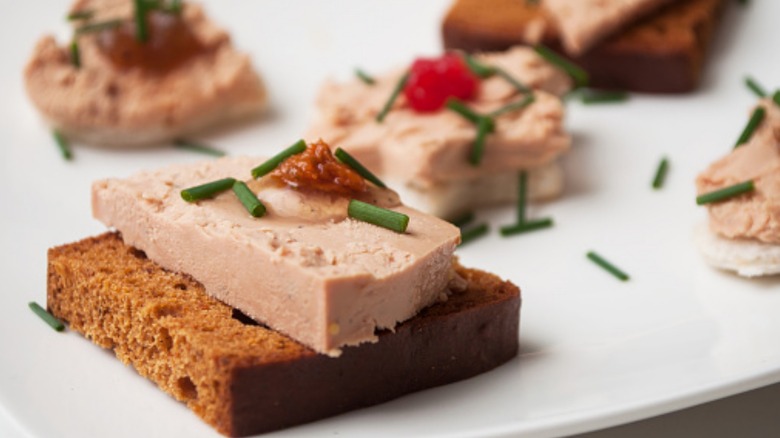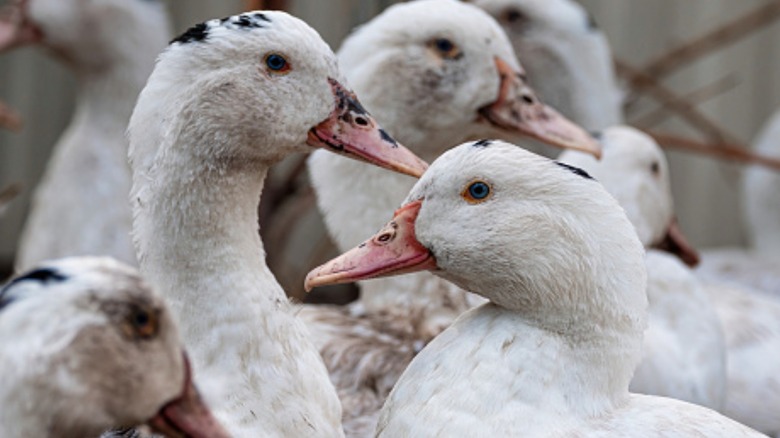The Sad Reason Foie Gras Is Banned In So Many Countries
Nothing evokes a sense of luxury like French cuisine. Traditional French dishes at their finest are more than food; They are full-body experiences. From an amuse-bouche to caviar (the real deal, not the fake stuff), at a classic French restaurant, you may find foods that sound and look as delectable as they are .
Foie gras is another prime example of fine French food. The duck or goose liver dish is best served on a piece of toasty, crusty bread and washed down with a glass of red wine. The smooth, fatty food product is a true delicacy that will transport you into the lap of luxury. However, the production of foie gras does not exactly evoke the sense of glitz and glamor that consuming it does. In fact, the methods that go into producing foie gras have led to the dish's banning in cities, states, and even entire countries. It is a campaign subject of many high-profile animal rights organizations, including Animal Legal Defense Fund and PETA. For many, foie gras demonstrates that the ends do not always justify the means.
The fatal flaw in foie gras
Foie gras is made from the fattened livers of ducks and geese. In fact, the term is French for "fat liver." The birds' livers are engorged by the process of gavage, a fancy word for force-feeding. After the birds mature to around three months of age, farmers restrict them to small cages to limit their movement, and force-feed them by tube multiple times per day. These practices expedite the birds' fat gain before harvest. As the Singergia Animal Charity solemnly explains, "From the moment they are subjected to force-feeding, they are deprived of the ability to choose where they go or what and how much they eat for the rest of their short lives."
As you can imagine, consistently force-feeding the birds causes them immense physical distress. One study found that the ducks' cortisol (stress hormone) level remains high throughout the force-feeding period. The force-feeding procedure can also cause tears in the esophagus, overheating, diarrhea, and more painful physical issues. By the end of their lives, these birds have experienced immense suffering unlike anything experienced by their wild cousins.
A transnational movement against foie gras that continues to mobilize
As a result of the animal rights activists pulling back the curtain on the cruelty inherent in foie gras production, a transnational movement to ban the French dish persists. As of 2024, 20 countries have banned foie gras, including Australia, India, Israel, Germany, the United Kingdom, and Turkey among others. In the United States, the production and sale of foie gras is prohibited in California, Rhode Island, and the city of Pittsburgh. It was banned in New York City in 2019, but the ban is being delayed due to pushback from farmers.
In France, the food item's biggest producer and distributor, the enthusiasm for foie gras is still strong — at least for the time being. Tradition may often trump ethics, but the direction that international attitudes and demands for foie gras has taken is promising for the wellbeing of the affected waterfowl.


